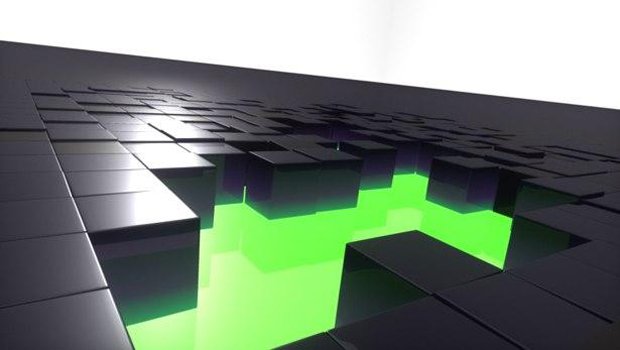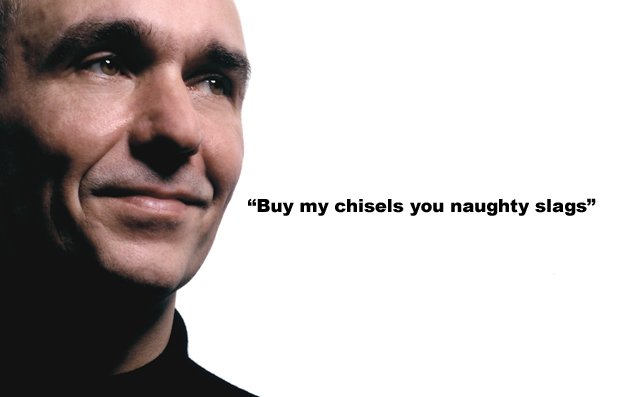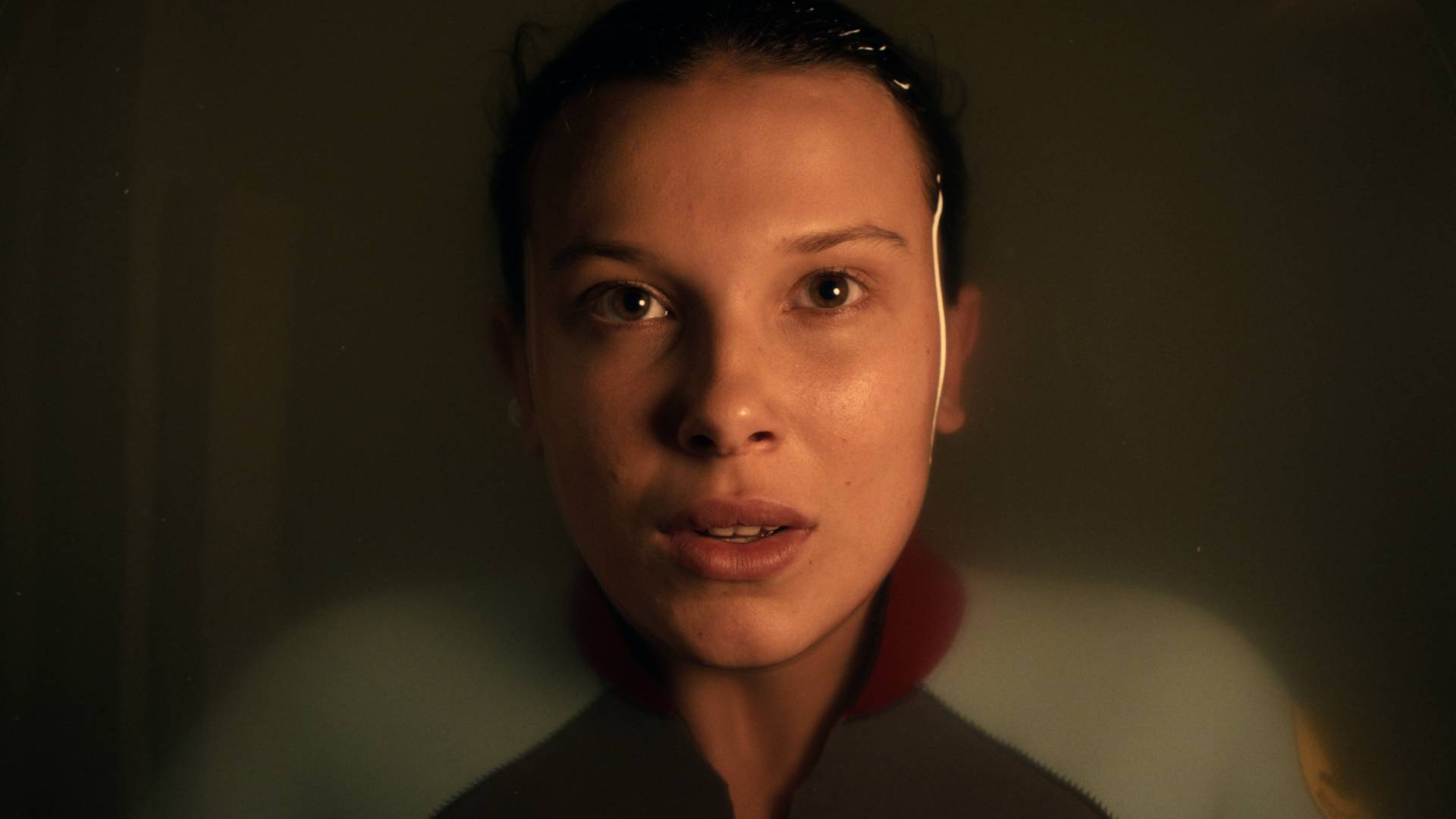It's Peter Molyneux. He's got a new game. It's about a cube in a room and... well, you'd better sit down
Former Fable man is doing experiments
Just as E3 is starting to grind me down with its relentless barrage of killing and stabbing and exploding, along comes ex-Fable visionary and royally appointed developer to Her Majesty The Queen, Sir Peter Molyneux, like a breath of fresh madness to cheer me up with some wonderful tales from beyond the rabbit hole.
Peter's latest adventure at his new 22Cans studio is a game called Curiosity. It's about a huge black cube in a room. The huge black cube is made up of lots of little black cubes. Players tap the cube with chisels, which in turn causes the cube to crack. Every player playing the game is chiselling away at the same cube. The objective is to be the first player to crack the cube open, at which point - according to Peter - something "truly amazing, absolutely unique" will be revealed. But here's the rub - the "truly amazing, absolutely unique" thing will only be revealed to the player that cracks the cube. And that's it.
Only it's not it. There's more.

Above: An artist's impression of what Peter Molyneux's ideas look like
At some point during the ongoing chiselling, DLC will become available that offers players the chance to upgrade their chisel. By upgrading chisels players will increase their chances of being the one to deal the final cube-cracking blow and discovering whatever meaning of life marvel waits entombed within. Prices of DLC chisels will vary from 59p for an iron chisel, to £50,000 for a diamond chisel. Yes. That's £50,000 for a virtual diamond chisel. Although it is 100,000 times more powerful than the regular chisel and there will only be one DLC diamond chisel for sale, so I can see how it would be totally worth it.
From the perspective of a sane-person this whole thing would seem like a complete waste of time. But not Peter. He has designed Curiosity - which is only the first in a series of 22 experiments - to explore the psychology of social-media users. How so? For example, Peter wants to discover how the player who ultimately cracks the cube shares the good news. Peter says: "How will this person prove it? That in itself becomes a fascinating aspect of this experiment."

Above: At no point has Peter Molyneux actually said those words
Weekly digests, tales from the communities you love, and more
And what of the £50,000 for a virtual diamond chisel - what does Peter say about that? He says this: "It's an insane amount of money." And he's right. Will anyone pay that sort of money? Will anyone be that curious and ludicrously affluent to find out what's inside the cube? This is what Peter wants to extrapolate by charging £50,000 for a virtual diamond chisel. Peter says: "This is not a money-making exercise. It is a test about the psychology of monetisation."
Say what you like about Peter and his adventures from beyond the rabbit hole (please do in the comments), but I like the guy. I like what he's doing. It's interesting. It's entertaining. What could possibly be inside the cube? And will someone actually spend £50,000 on a virtual chisel to find out? And will that person be completely sick all over themselves if someone with the 59p chisel cracks open the cube before them?
Maybe Half-Life 3 is inside the cube.
Who knows? You'll be able to chisel away at your Curiosity in a few weeks when its released on PC and mobiles.
Once Peter has finished with his experiments, he's going to use the results to help him complete the final design for a game he's planning to release in 2014. I'm already looking forward to it.
For more on Curiosity, read the original article at New Scientist where I pilfered all this information from.
Now, back to E3...



